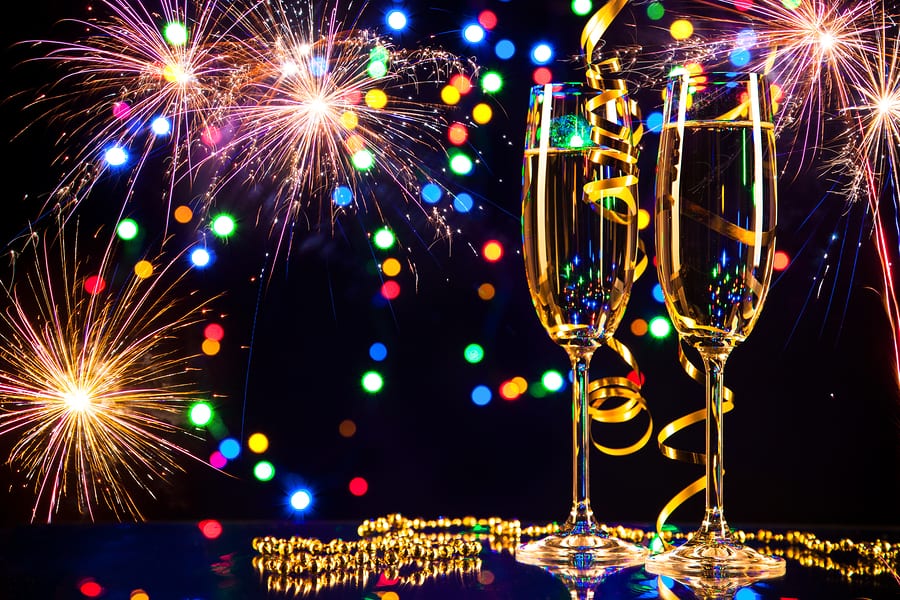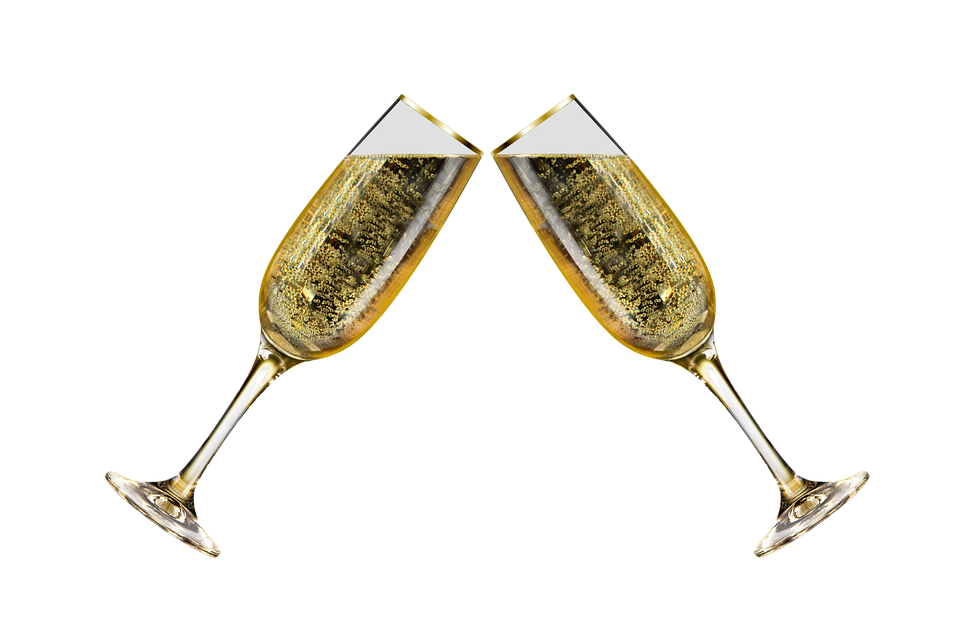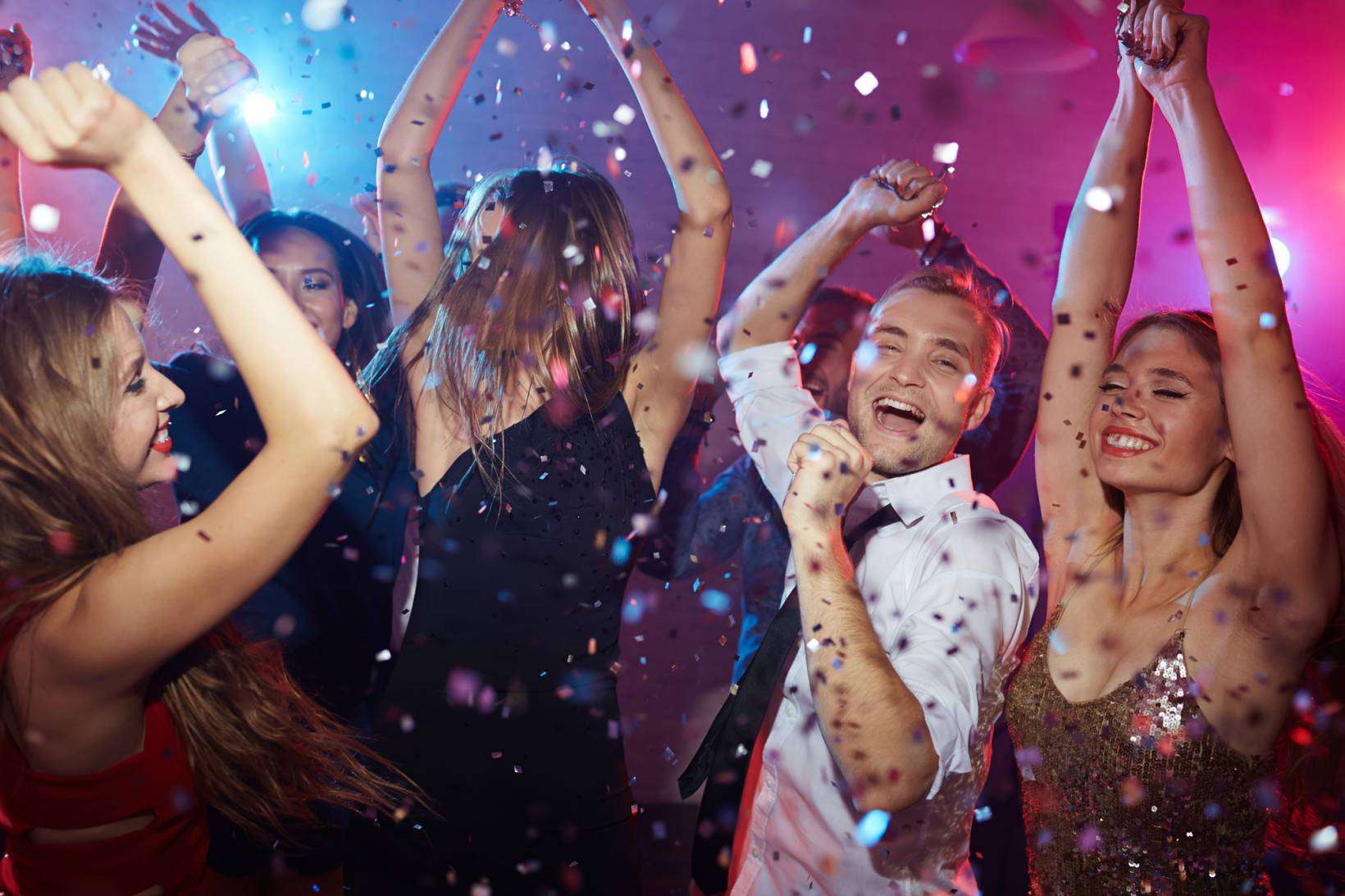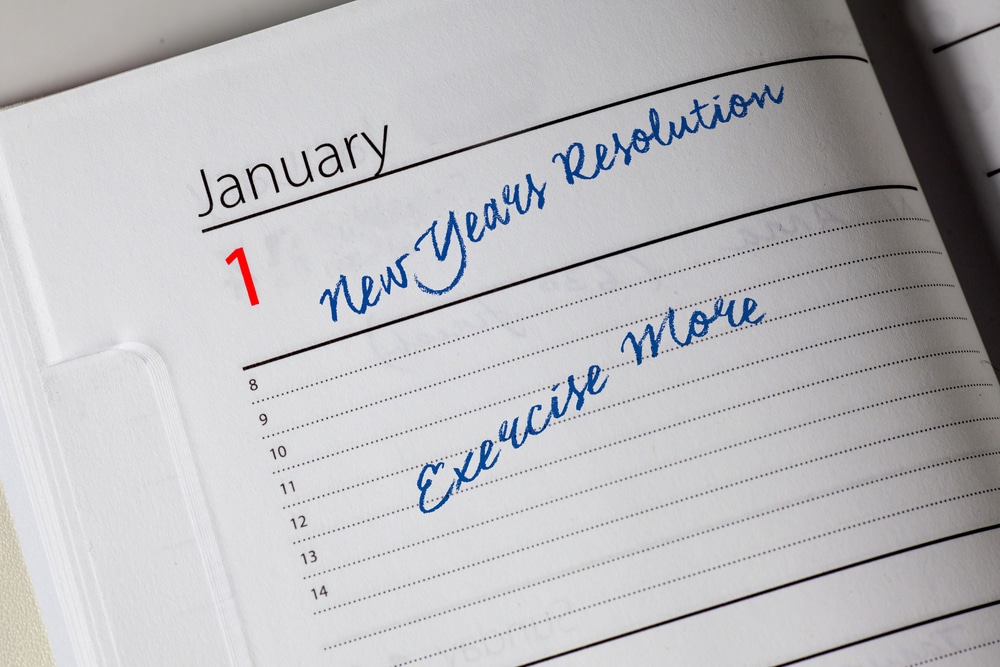
40 New Year’s Words and Phrases to Ring In 2024 in Style
New Year’s is a time when we come together to celebrate, to reflect and to look towards the future.
It is no surprise that New Year’s involves a lot of specific and interesting vocabulary.
In this post, you’ll learn 40 essential New Year’s words including the party vocabulary that is specific to the celebration of the new year.
Contents
- New Year’s Wishes and Traditions
- Drinks and Toasting
- Spectacular Displays
- Partying and Celebrating
- Reflecting on the Past and Welcoming the Future
- And One More Thing...
Download: This blog post is available as a convenient and portable PDF that you can take anywhere. Click here to get a copy. (Download)
New Year’s Wishes and Traditions
1. Happy New Year!
Let’s start with the most obvious one—”Happy New Year!”
It’s a cheerful greeting used to wish someone well at the beginning of a new year. People commonly say “Happy New Year” to friends, family, and acquaintances during the first few days of January.
2. New Year’s Eve
New Year’s Eve is on the 31st of December. We use the word eve to refer to the day or night immediately before an expected event. It comes from the word evening.
For example, we also say Christmas Eve, which is on the 24th of December.
New Year’s Eve is when people gather to drink, eat and celebrate the year that has passed and the year that is to come!
3. New Year’s Day
New Year’s Day is on the 1st of January. It is considered a holiday in many English-speaking countries. Many people will stay awake until midnight on New Year’s Eve so that they can celebrate New Year’s Day from the very beginning.
4. Celebrate
To celebrate means to engage in joyful activities or rituals to mark a special occasion.
During New Year’s, people celebrate the end of the current year and the beginning of the new one.
5. Wishing well
It is a kind expression used to convey good wishes and positive intentions for someone’s well-being. During the New Year, people often exchange wishes for health, happiness, and success, creating a positive and supportive atmosphere.
6. Good luck charm
A “good luck charm” is a small item believed to bring good fortune or luck to its possessor. During the New Year, people may carry or exchange good luck charms as symbols of hope and positivity for the upcoming year.
7. Fortune
Fortune refers to one’s fate or destiny, especially in terms of wealth, success, or prosperity. Expressions like “Wishing you good fortune in the New Year” convey positive wishes for abundance and positive outcomes.
8. Counting down to the new year
The New Year’s countdown is when people count backward from a number (usually 10) to mark the start of the new year. That being said, a countdown can be used to mark the beginning of any event.
To count down is a phrasal verb to signify the action of a countdown, which is a noun.
Take a look at the example below.
We all counted down from 10 with a special New Year’s countdown.
Either way, it is one of the most common New Year’s traditions.
9. New Year’s ball drop
Major cities across the globe all have particular New Year’s celebrations. For example, in Sydney, Australia, you will see a stunning (beautiful) fireworks display from the Sydney Harbour Bridge.
One of the most famous New Year’s traditions is the ball drop in Times Square, New York. It is believed that a ball drop is an old tradition that came from sailors!
On top of the Times Tower in Times Square, a giant ball drops down a pole to signify the new year. It is estimated that more than one billion people, both virtually and in-person, watch this event. The ball drops after a countdown to the new year.
Be careful not to confuse the phrase “ball drop” with another one: “dropping the ball.”
If you say “to drop the ball,” you will be using a phrasal verb that means to make an error or mistake on a big scale!
You can learn more expressions naturally with a program like FluentU.
FluentU takes authentic videos—like music videos, movie trailers, news and inspiring talks—and turns them into personalized language learning lessons.
You can try FluentU for free for 2 weeks. Check out the website or download the iOS app or Android app.
P.S. Click here to take advantage of our current sale! (Expires at the end of this month.)

10. Kissing at midnight
Kissing on New Year’s Eve is believed to bring good luck!
If you kiss your loved one, or sometimes anyone, at midnight, the moment that the new year begins, then you will receive good luck in love, dating and romance.
But, if you cannot find anyone to kiss, then, well, you guessed it, the opposite happens. You will be unlucky in love for the year!
This practice is a little outdated, meaning old or traditional. Take a look at some creative alternatives that people have come up with recently.
Drinks and Toasting
11. A glass of bubbly
A glass of bubbly refers to a glass of Champagne. It is very common to drink Champagne when celebrating, and you will see many people drinking Champagne during their New Year’s celebrations.
“Bubbly” is slang, or informal language, for Champagne. It comes from the way that Champagne bubbles in the glass.
Shall we buy a nice bottle of bubbly for the New Year’s party?
I think so! After all, it is a celebration.
12. Champagne
Champagne refers to a type of sparkling wine that comes from the Champagne region of France.
It is associated with celebrations and special occasions, including New Year’s Eve.
13. Cheers
Cheers is an expression used when making a toast, typically accompanied by raising glasses. It’s a way of wishing good health, happiness, or success to those participating in the celebration.
“Cheers” is a common and friendly toast used during various festivities.
14. Cheers to the brand-new year
This phrase is used when raising glasses in a toast to express good wishes for the upcoming year.
15. To toast/a toast
A toast is a kind of salute or a way to recognize something or somebody. It is where a group of people raise their glasses to celebrate a special occasion. It is usually accompanied by a speech. Somebody will say a few words about the event, and then everybody will raise their glass in the air and take a sip of their beverage.
A toast is often accompanied by the verbs make or give.
I would like to make a toast to the new year.
I would like to give a toast to my friends, who have helped me throughout the year.
You can also use “to toast” as a verb.
I am going to toast your health at dinner.
Spectacular Displays
16. Fireworks
Fireworks are small explosives launched into the air to create a beautiful effect in the sky. They are usually launched at nighttime and are almost always related to a celebration.
They are often associated with events of a very large scale, meaning important or significant events, just like New Year’s!
17. Balloon
It’s a colorful inflatable decoration that some people release at midnight as a symbolic gesture to welcome the new year.
18. Confetti
Confetti is a type of colored paper that has been cut into very small pieces. Confetti is thrown into the air to create a kind of explosion of color. You will notice that it is similar to the use of fireworks in this way.
You can buy confetti to use in your home, or sometimes it is used in the streets during big celebrations.
When it falls, it is kind of like colorful rain!
19. A sparkler
A sparkler is a small firework. Usually, they are held in the hand and waved around. Sometimes, sparklers are also placed onto cakes or food when they are brought into the room.
When they are lit, little sparks shoot off of the metal sticks.
Sparklers are very popular with small children, who like to wave them around in celebration at these big events.
Partying and Celebrating
20. To throw a party
“To throw a party” is a very common English expression. It means to organize a party for your friends and family.
While not always, it is implied that the party will be in your home or place of residence.
I was thinking of throwing a party in my apartment to celebrate the new year.
Are you sure there is enough space?
21. To dance the night away
“To dance the night away” is a popular English idiom. It means that you dance the entire evening. However, it can also be used to more generally mean that you were partying late into the night.
While it is a popular idiom to use on New Year’s Eve, it can be used to describe a fun time that you had during any night.
It was so great. We danced the night away!
22. To ring in the new year
“To ring in the new year” essentially means to celebrate the new year.
We might also say to mark the new year.
To mark the new year is to acknowledge the event with some form of celebration.
23. To dress up for a party
“To dress up” is another phrasal verb that has two distinct meanings. The first means to wear your most formal, or fanciest, clothes. The second means to wear a costume for a party that has a theme.
Parties for the new year sometimes have a theme. For example, I could have a superhero party where people come dressed up as their favorite superhero character.
Did you know that Paul is having a superhero party for the new year? Who will you dress up as?
I was thinking I would dress up as Batman because he has always been my favorite superhero.
24. Party favor
A party favor is a small gift or souvenir given to guests at a party or celebration. During New Year’s Eve parties, hosts might provide party favors as a token of appreciation for attendees.
These can range from small trinkets to items that symbolize good luck.
25. A hangover
A hangover is the result of a night of heavy drinking. A hangover includes a headache, as well as feelings of nausea and sickness, the following day.
Due to the overconsumption of alcohol, one of the most common expressions used by English speakers on New Year’s Day is “I am nursing a hangover.” This means that you currently have a hangover and are trying to deal with it as best you can.
Well, I told you not to drink so much at the New Year’s party!
Reflecting on the Past and Welcoming the Future
26. Let the next adventure begin
It’s a metaphor we use to welcome the new year as a fresh start or a new journey.
It conveys a sense of excitement and anticipation for the opportunities and experiences the upcoming year may bring.
27. Same time, next year
This phrase is often used to express the desire to meet or gather again at the same time in the following year.
It reflects the hope for continuity and the anticipation of shared experiences in the future.
28. A New Year’s resolution
A New Year’s resolution is a promise that you make to yourself. It is a decision to commit to something or to stop a particular habit or behavior next year.
It is a common practice for people to make resolutions for the new year.
Did you make any New Year’s resolutions this year?
Yes, I want to quit smoking. But you know what they say: New Year’s resolutions never last!
29. Out with the old, in with the new
“Out with the old, in with the new” is an expression that is commonly used around the time of the new year. It is a phrase that means that you should look towards the future, or what is new, and forget about the past, or what is old.
The phrase does not have to refer to literal objects or physical things. It can be used metaphorically, which means that you can use it to describe bad habits or behaviors.
30. To turn over a new leaf
“To turn over a new leaf” is another English idiom that is very commonly used around the new year. It means to change your behavior, or the way that you do things, for the better. While it can be used at any time of the year, it is commonly heard around the new year, as this is when people are making their New Year’s resolutions.
It is time to turn over a new leaf. This year, I am going to quit my job and find a better one.
31. Fresh start
A fresh start signifies a new beginning or the opportunity to make positive changes in one’s life.
During the New Year, people often use the concept of a fresh start to set goals, make resolutions, and embrace a renewed sense of optimism.
32. Blank slate
A blank slate is a metaphor for starting anew without preconceived notions or past influences.
When people refer to a blank slate during New Year’s, they express the idea of leaving behind old habits or issues and embracing a clean start.
33. Turn the page
To turn the page means to leave behind the past and move forward.
This metaphor is commonly used during the New Year as a symbol of starting a new chapter in life, turning away from past challenges, and looking toward a brighter future.
34. New horizons
New horizons represent unexplored opportunities and possibilities.
When people talk about new horizons during the New Year, they are expressing a sense of anticipation for the exciting experiences and ventures that lie ahead.
It conveys an openness to embrace the unknown future.
35. Year in review
It’s what we say when thinking about the events and achievements of the past year.
People often reflect on the highs and lows, recalling memorable moments and assessing personal growth.
It’s very common to hear this phrase at the end of the year when summarizing experiences.
36. Reflection
During the New Year, people think deeply and carefully about the past and set intentions for personal development in the future.
37. Looking back
It is a simple expression that means to review or reminisce about past events.
As the year comes to a close, people may spend time looking back on the significant moments, challenges, and achievements they’ve encountered.
38. Anticipation
Anticipation is the feeling of excitement or expectation about something that is about to happen.
As the New Year approaches, there is a sense of anticipation for the fresh start, new opportunities, and the adventures that the upcoming year may bring.
39. Future endeavors
It refers to future undertakings, projects, or activities that someone plans to pursue.
During the New Year, individuals may express their enthusiasm for future endeavors by setting goals and outlining plans for personal or professional development.
40. Aspirations
Aspirations are strong desires or ambitions for achieving something meaningful.
When people talk about their aspirations during the New Year, they are sharing their hopes and dreams for personal growth, success, or fulfillment in the coming year.
Now you can ring in the new year with lots of new vocabulary and knowledge of English celebrations. Do not forget to make English fluency one of your New Year’s resolutions!
And One More Thing...
If you like learning English through movies and online media, you should also check out FluentU. FluentU lets you learn English from popular talk shows, catchy music videos and funny commercials, as you can see here:
The FluentU app and website makes it really easy to watch English videos. There are captions that are interactive. That means you can tap on any word to see an image, definition, and useful examples.
For example, when you tap on the word "searching," you see this:
Learn all the vocabulary in any video with quizzes. Swipe left or right to see more examples for the word you’re learning.

FluentU helps you learn fast with useful questions and multiple examples. Learn more.
The best part? FluentU remembers the vocabulary that you’re learning. It gives you extra practice with difficult words—and reminds you when it’s time to review what you’ve learned. You have a truly personalized experience.
Start using the FluentU website on your computer or tablet or, better yet, download the FluentU app from the iTunes or Google Play store. Click here to take advantage of our current sale! (Expires at the end of this month.)
















